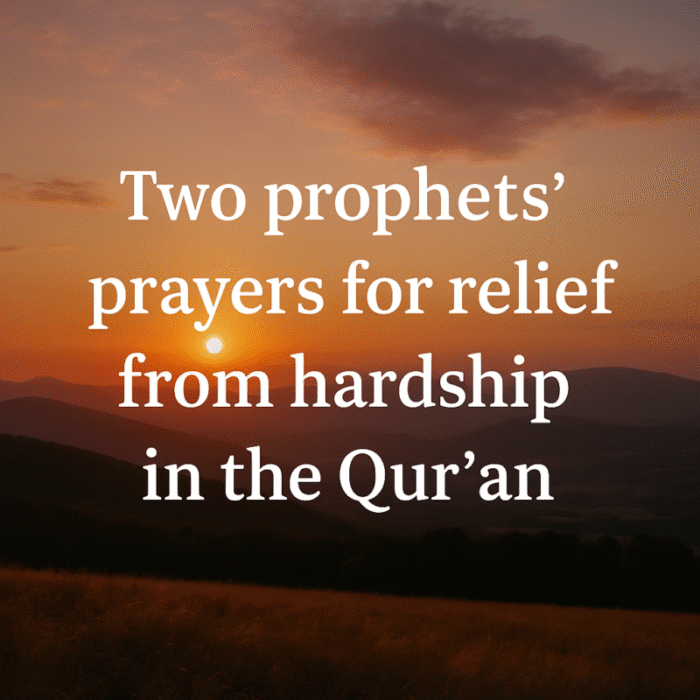Dua (Supplication) is a Believer’s Weapon
For a Muslim, dua is a powerful weapon. In times of both happiness and sorrow, a true believer expresses their feelings and needs to Allah Ta’ala through dua. The Prophet Muhammad (peace be upon him) taught us many supplications, and the previous prophets also made various du’as during their times of hardship. These supplications can serve as means of deliverance for us during difficulties. Below are two powerful du’as made by Prophet Ayyub (Job, peace be upon him) and Prophet Yunus (Jonah, peace be upon him) in their moments of severe trials. Allah Ta’ala accepted their prayers and relieved them from their afflictions.
The Dua of Prophet Yunus (peace be upon him)
Prophet Yunus (peace be upon him) was a messenger of Allah who spent a long time in the belly of a fish. During that time of immense hardship, he made a heartfelt dua to Allah Ta’ala. This supplication is famously known as “Dua Yunus”:
Arabic:
لاَ إِلٰهَ إِلاَّ أَنْتَ سُبْحَانَكَ إِنِّي كُنْتُ مِنَ الظّالِمِينَ
Transliteration:
La ilaha illa anta, subhanaka inni kuntu mina’z-zalimeen.
Meaning:
“There is no deity except You. You are exalted. Indeed, I have been of the wrongdoers.”
(Surah Al-Anbiya, verse 87)
It is narrated by Sa’d (may Allah be pleased with him) that the Messenger of Allah (peace be upon him) said:
“When Yunus (peace be upon him) was in the belly of the fish, he recited this supplication. Whoever among the Muslims recites it regularly, Allah will surely respond to his prayer.”
(Tirmidhi, Hadith: 3505)
The Dua of Prophet Ayyub (peace be upon him)
Prophet Ayyub (peace be upon him) was afflicted with a severe and prolonged illness. His condition worsened to the point where even his family and friends abandoned him. In that desperate state, he turned to Allah with a sincere and humble plea.
Allah Ta’ala accepted his supplication and granted him healing. His prayer is mentioned in the Holy Qur’an:
Arabic:
اَنِّیۡ مَسَّنِیَ الضُّرُّ وَ اَنۡتَ اَرۡحَمُ الرّٰحِمِیۡنَ
Transliteration:
Anni massaniyad-durru wa anta arhamur-raahimeen.
Meaning:
“Indeed, adversity has touched me, and You are the Most Merciful of the merciful.”
(Surah Al-Anbiya, verse 83)
These duas are not just historical; they are timeless and deeply powerful. Reciting them with sincerity can bring comfort, strength, and divine assistance in times of trial.

